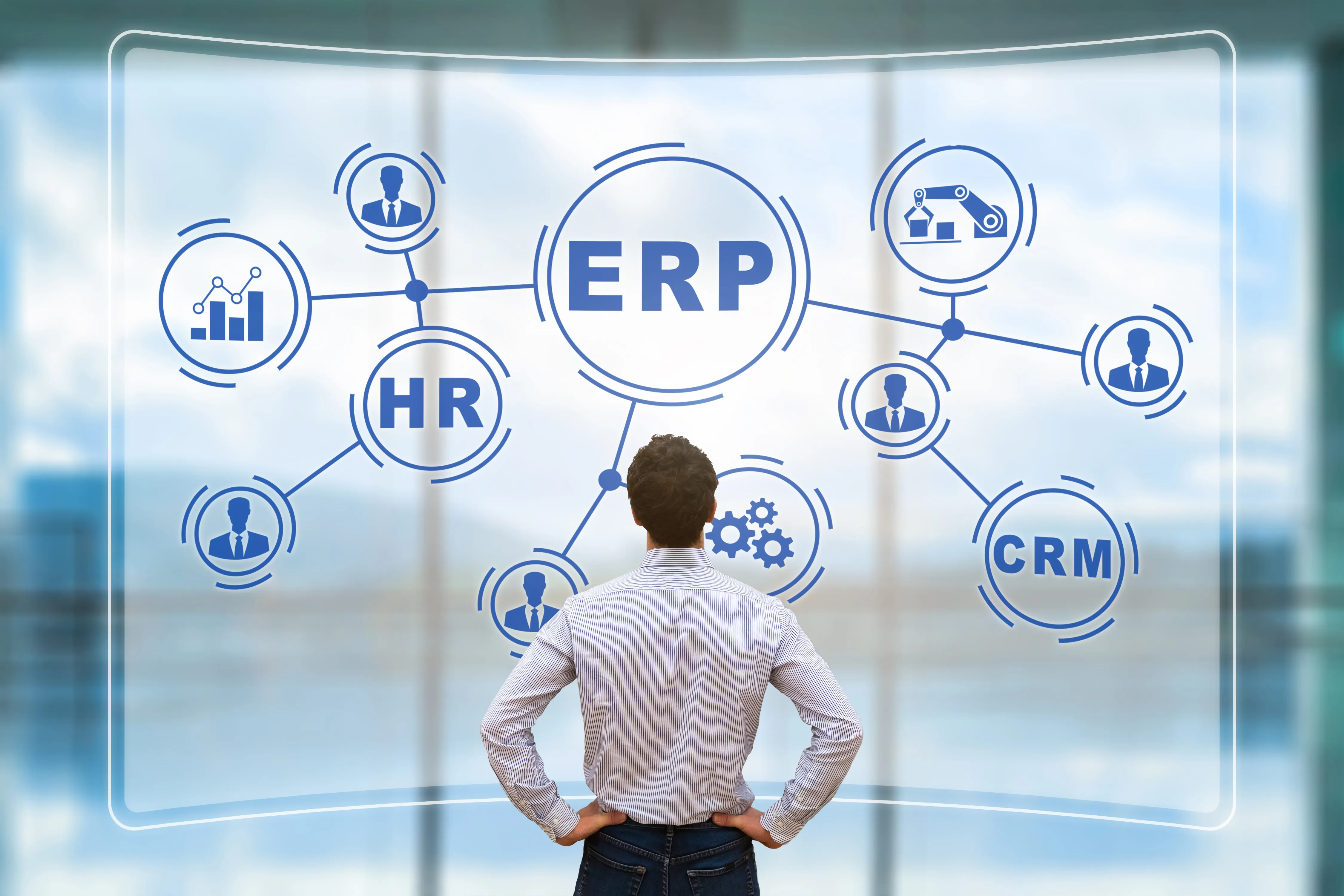Enterprise Resource Planning (ERP) software has become the backbone of modern businesses, providing a comprehensive suite of tools to streamline processes, optimize workflows, and enhance decision-making. Start a search today to learn more.
In today’s rapidly evolving business landscape, staying ahead of the competition requires seamless integration and efficient management of various operations. This is where ERP software comes into play. It can transform your business!
What is ERP Software?
ERP software is an integrated suite of applications designed to facilitate and automate core business processes across an organization. It enables efficient data sharing, real-time insights, and smooth collaboration between different departments, eliminating the silos that hinder productivity. With roots in manufacturing resource planning systems, ERP has evolved to encompass a wide range of industries and functionalities.
 NicoElNino/Shutterstock
NicoElNino/ShutterstockAdvantages of ERP Software
- Streamlining Business Processes: ERP streamlines business operations by automating repetitive tasks, reducing manual errors, and minimizing the need for paperwork. This enhances productivity, allowing employees to focus on strategic initiatives.
- Centralizing Data and Information: By centralizing data from various departments, ERP creates a single source of truth, ensuring data consistency and accuracy. This helps in making informed decisions based on real-time data.
- Enhancing Collaboration and Communication: ERP fosters seamless communication between different teams and locations, promoting better collaboration and coordination throughout the organization.
- Improving Decision-Making and Reporting: With comprehensive reporting and analytics tools, ERP software enables data-driven decision-making, allowing businesses to identify trends, strengths, and areas for improvement.
- Increasing Efficiency and Productivity: By automating manual processes and optimizing workflows, ERP enhances operational efficiency and overall productivity, leading to cost savings and improved competitiveness.
Common Features of ERP Software
- Financial Management: ERP systems offer modules for managing accounting, budgeting, financial reporting, and financial analysis.
- Human Resources and Payroll: HR modules automate employee management, payroll processing, attendance tracking, and performance evaluation.
- Inventory Management: ERP software assists in optimizing inventory levels, tracking stock movements, and ensuring timely replenishment.
- Supply Chain Management: ERP streamlines supply chain processes, from procurement to distribution, to improve efficiency and reduce costs.
- Customer Relationship Management (CRM): CRM modules help manage customer data, sales processes, and customer service, improving customer satisfaction and retention.
- Manufacturing and Production: ERP software aids in planning, scheduling, and optimizing production processes, ensuring smooth manufacturing operations.
- Reporting and Analytics: ERP offers robust reporting and analytics tools to gain insights into business performance and trends.
How to Choose ERP Software
Selecting the right ERP software is a critical decision for any organization. Here are some key steps to consider during the selection process:
- Identify Business Needs and Objectives: Understand the specific requirements of your business and align them with the capabilities of different ERP vendors.
- Research and Evaluate Vendors: Conduct thorough research, read reviews, and compare different ERP solutions to find the one that best fits your needs.
- Consider Customization and Integration: Assess the flexibility of the ERP system and its ability to integrate with existing software and systems.
- Plan for scalability and Future Requirements: Choose an ERP solution that can grow with your business and adapt to future needs.
- Cost Analysis and Budgeting: Evaluate the total cost of ownership, including implementation, licensing, and maintenance expenses.
Popular ERP Software Solutions in the Market
When it comes to choosing the right ERP software for your business, it’s essential to explore the leading solutions in the market. Here, we delve into some of the most popular ERP software solutions that have earned a reputation for their robust features and proven performance:
- SAP ERP: SAP ERP is one of the most widely used and trusted ERP solutions globally. Known for its scalability and flexibility, SAP ERP caters to businesses of all sizes and industries. It offers a comprehensive suite of modules for financial management, human resources, supply chain, CRM, manufacturing, and more. SAP ERP’s real-time analytics and reporting capabilities empower businesses with valuable insights, helping them make informed decisions and stay ahead of the competition.
- Oracle NetSuite: Oracle NetSuite is a cloud-based ERP solution designed to streamline business operations and accelerate growth. Renowned for its easy implementation and user-friendly interface, NetSuite is particularly popular among small and medium-sized businesses. The platform integrates financial management, CRM, e-commerce, inventory management, and more, providing a unified view of the business. Its cloud-based approach ensures scalability and accessibility, making it an ideal choice for businesses with remote and distributed teams.
- Microsoft Dynamics 365: As a part of Microsoft’s comprehensive business applications suite, Dynamics 365 is a powerful ERP solution that seamlessly integrates with other Microsoft products. Dynamics 365 offers various modules, such as Finance, Supply Chain Management, Sales, and Customer Service, catering to diverse business needs. Its user-friendly interface and familiar Microsoft ecosystem make it easy for organizations to adapt and leverage their existing technology investments.
Conclusion
ERP software has become an indispensable tool for businesses, driving efficiency, productivity, and growth. By centralizing data, optimizing processes, and enabling data-driven decision-making, ERP empowers organizations to stay competitive in an ever-changing market. However, successful ERP implementation requires meticulous planning, stakeholder involvement, and adherence to best practices. With the advent of cloud-based solutions, AI integration, and IoT impact, ERP software is poised to continue transforming businesses and shaping the future of enterprise management.